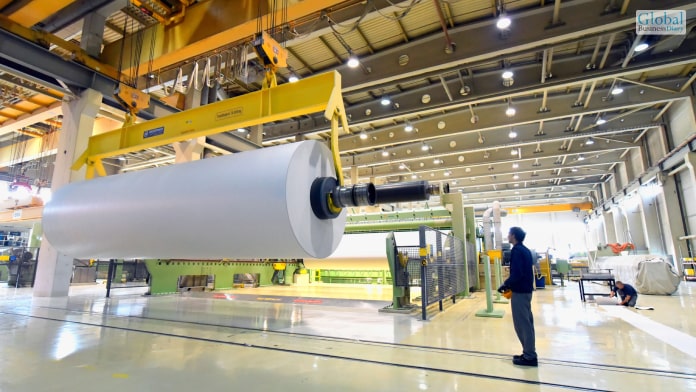Is Basic Industries A Good Career Path?

Is basic industries a good career path? Yes. But, yes is not enough to answer your serious questions.
When choosing a career option, people look for a good salary, different benefits, learning opportunities, and the security of working in a stable and indispensable industry.
If you work in the basic industries, you expect all the benefits of working for a growing and stable industry. Also, the salary and security of your profession are high.
But what is the basic industry? What are the opportunities for working in this industry? What are the different benefits? This article contains all the information you want on your query.
What Are Basic Industries?

The basic industry is one of the most stable industries to have a job in. these industries provide raw materials for different manufacturing industries producing necessary consumable products. Their process often includes the following:
- Developing ideas for new materials.
- Exploring them.
- Processing them to be used in the manufacturing industries.
Working in the basic industry requires lots of technical expertise and work. Some basic industries also pose some threats to the environment; that is why it is necessary for the people working in these industries to follow the necessary safety precautions.
However, with the right temperament, skills, and hard work, it is possible to make basic industry jobs a successful career.
Is Basic Industries A Good Career Path?

Why should you choose a basic industry job? The reason is simple – this industry is growing and will keep growing. According to the statistics revealed by the U.S. Bureau Of Labor, this industry will keep growing.
Mining, an industry in the basic industries category, is supposed to grow by 12% between 2021 and 2031. More than 2.2 million jobs will be available in the agriculture sector. The basic industry is elemental to any economy.
According to the data of the U.S. Bureau Of Labor, there are currently 22262.92 jobs in the basic industries. This makes a 12.4% increase from the number of jobs in 2010. The number of jobs will also increase as we approach 2030.
The job opportunities in the agriculture, construction, and manufacturing industry will keep on growing. These reasons make basic industry jobs a reasonably viable option.
Different Types Of Basic Industries
So, if you were wondering which industries fall under the basic industry, then you should check out the section below. Here you can learn about different basic industries –
Agriculture Industry

Both underdeveloped and developing economies depend upon the agriculture industry. It is the most dominant and prominent example of the basic industries. Many working professionals are directly and indirectly connected to the agriculture industry.
This industry is the primary source of a country’s food. It offers raw materials to different food processing companies. The agriculture industry has a direct connection with a country’s economy.
Oil & Gas

There are three different segments of the oil and gas industry. It is also a big and important industry under the basic industries category. The three main categories in this industry are – midstream, upstream, and downstream.
Three of these different categories have their work divided. For example, the upstream companies discover gas and oil; the midstream firms work with oil transportation, processing, and storage. The downstream companies are involved with refining and removing impurities from the oil.
Mining Industry

The mining industry is also important among the basic industries. Wide varieties of work and activities require a professional workforce in the mining industry every year. The workers in this industry have to work with the exploration of minerals and readying them as raw materials for other industrial uses.
Paper And Pulp Industry

The basic industry also comprises paper and pulp companies. Although many believed this industry to be diminishing slowly, it continues to grow and thrive. Different firms use paper for packaging, making hygiene products, and tissue. This industry is also connected to the production of graphic papers used for newsprints.
Chemical Industry

Chemical transport is also an essential part of the industry, ensuring the safe and secure delivery of raw materials and finished products. For those interested in this field, the chemical industry can offer a rewarding career path with opportunities for growth and development.
The chemical industry is also elemental to the growth and development of human civilization. The chemicals are useful during the transformation of raw material into chemical solutions or gases. Companies in the chemical industry can be categorized under three different categories. For example –
- Basic chemicals
- Specialty chemicals
- And consumer chemicals
Chemicals in all three categories consist of paints, dyes, pesticides, detergents, soaps, and more.
Steel Industry

Human civilization cannot proceed further without the use of steel and irons. Steel is an alloy made using carbon and iron. Almost all industries producing any light to heavy good requires steel. It is the foundation of the modern world. Vehicles, ports, bridges, and many other materials require steel. If you are planning to get a job in the basic industries, the steel industry might be a proper fit.
Frequently Asked Questions (FAQs):-
Here are some similar questions and answers related to the basic industries. You may find them valuable.
Ans: They call this industry a basic industry because it provides the basic and raw materials for the manufacturing of different consumable products. They offer machine tools, construction equipment, transport equipment, and more. The iron and steel industry falls under the basic industry category since they offer materials to almost all industries.
Ans: Basic industries are companies that provide all the raw materials to different industries that require those products for the production of many different products. These industries are involved in the process of developing, discovering, and processing different types of raw materials.
Ans: When planning a career, you should look for stable industries that offer good job security and salary. Here are some recommendations you can check out –
⦿ Construction – 25,837 job vacancies.
⦿ Education – 12,317 job vacancies.
⦿ Engineering – 24,244 job vacancies.
⦿ Administration – 9,321 job vacancies
⦿ IT – 11,065 job vacancies.
⦿ Automotive – 9,321 job vacancies.
.Sales – 8,165 job vacancies.
Wrapping Up
When it comes to a stable career, the basic industries have the aspirants covered. The requirement for workers in mining, chemical, agriculture, and other basic industries will keep on increasing. So, is basic industries a good career path? I think you should have no doubt once you have read this article.
However, if you have any further queries, you can leave your questions in the comment section. We will reach you in a flash.
Read Also:













